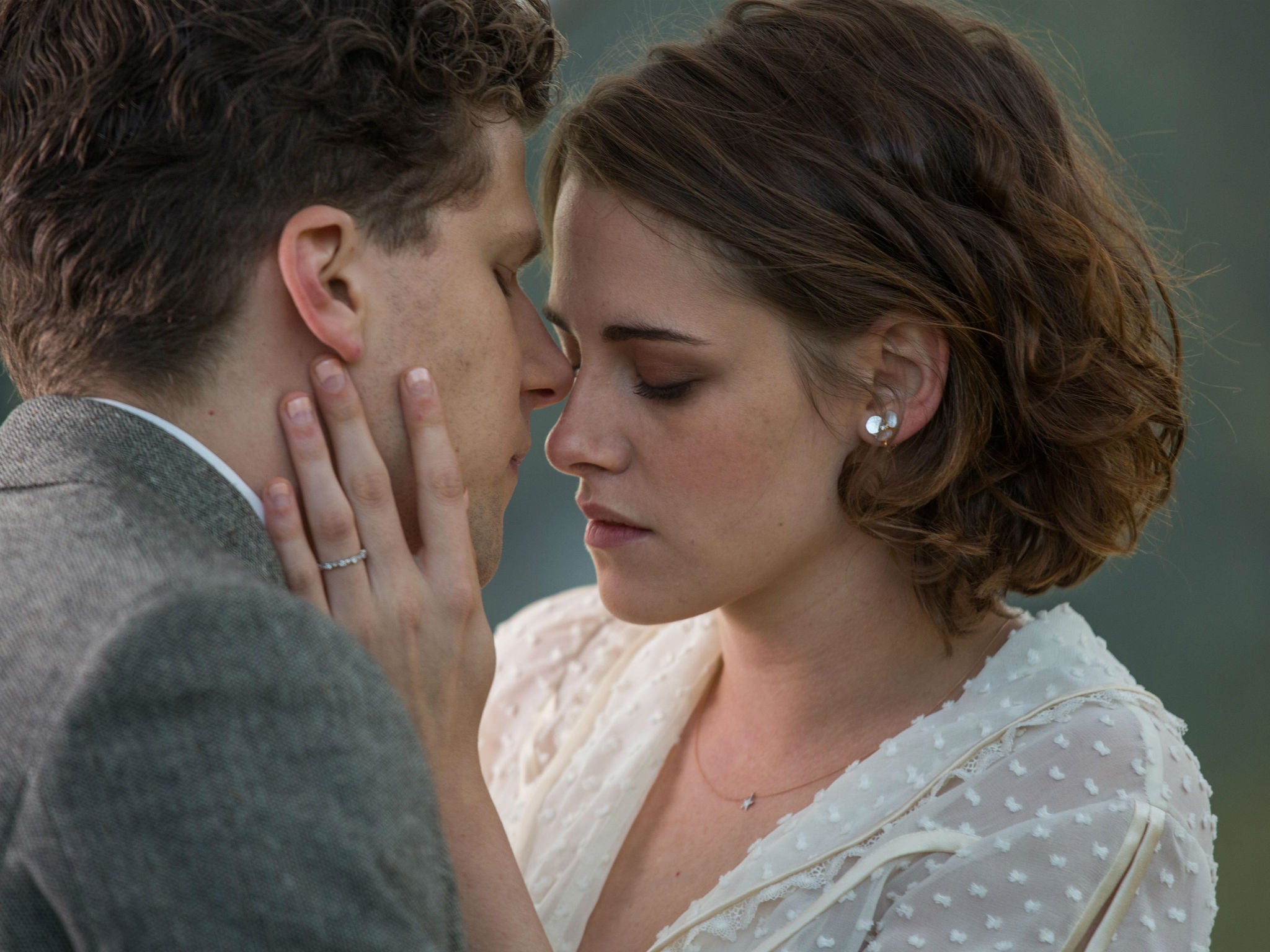Cafe Society, Cannes film review: Gentle, whimsical and sumptuously-shot
Even if Allen’s energy levels may be dipping, he still knows just how to mix the comedy and the pathos

Woody Allen’s latest feature, which opened the Cannes Festival on Wednesday, is a gentle and whimsical romantic comedy-drama that moves along at the leisurely pace you might expect from an 80-year-old director. Financed by Amazon Studios, it is very sumptuously shot in golden-hued, autumnal colours by the great cinematographer Vittorio Storaro. It has an intricately plotted screenplay and a beguiling jazz soundtrack. The film may be a little lacking in oomph, but it should still make Allen’s fans happy enough. After all, it carries plenty of echoes of his previous movies.
The film is set in the 1930s. Jesse Eisenberg plays Bobby Dorfman, a naive young Jewish kid from the Bronx who heads out to Hollywood, hoping to make his fortune. His uncle Phil (Steve Carrell) is a hotshot agent who knows all the big shots, from Greta Garbo to Fred Astaire and Ginger Rogers. Allen sets the scene in a slightly croaky voice-over, and Thirties Los Angeles is lovingly and lavishly recreated in all its art deco glory.
As Allen fans know, the filmmaker doesn’t much care for California. He can’t resist a few satirical sideswipes at the narcissism and inanity of Hollywood celebrity culture, even in the golden age of the big studios. Bobby takes his time to find his feet in tinseltown. Things look up when he falls in love with his uncle’s beautiful secretary Vonnie (Kristen Stewart). The hitch is that uncle Phil is in love with her too, even though he’s ostensibly happily married.
Bobby is “half bored, half fascinated” by the glitter of Hollywood and eventually decides that he will be much better off back in New York, where his gangster brother Ben (Corey Stoll) runs a nightclub. Ben is a charismatic ne’er do well with a hint of George Raft about him whose solution to neighbourly disputes is to bury anyone who annoys him in cement.
In its lesser moments, the film plays like a skittish comic version of Boardwalk Empire. However, it is also funny and, as the final reel approaches, increasingly affecting. Ken Stott has a scene stealing role as Bobby’s dad, a dim-witted, hen-pecked Jewish patriarch.
Allen throws in self-conscious references to Manhattan and Annie Hall. The film is very talkative indeed. Eisenberg’s Bobby is yet another of Allen’s protagonists who seems to be very closely modelled on the director himself. He’s supposed to be a raw young kid from the Bronx but he is witty and sometimes sarcastic, speaking in the kind of one-liners you might find in the Rodgers and Hart songs that are referred to several times during the film. He has an easy rapport with Kirsten Stewart’s Vonnie, who plays her character in appealing fashion as a girl next door type who also has the ability to break hearts.
There is a surprising undertow of melancholy to the film. This may be a romantic comedy but it is as much about what keeps couples apart as about what draws them together. Some of Allen’s recent movies have had the feeling that they were thrown together very quickly but Café Society is very lovingly crafted. Even if Allen’s energy levels may be dipping, he still knows just how to mix the comedy and the pathos.
Join our commenting forum
Join thought-provoking conversations, follow other Independent readers and see their replies
Comments